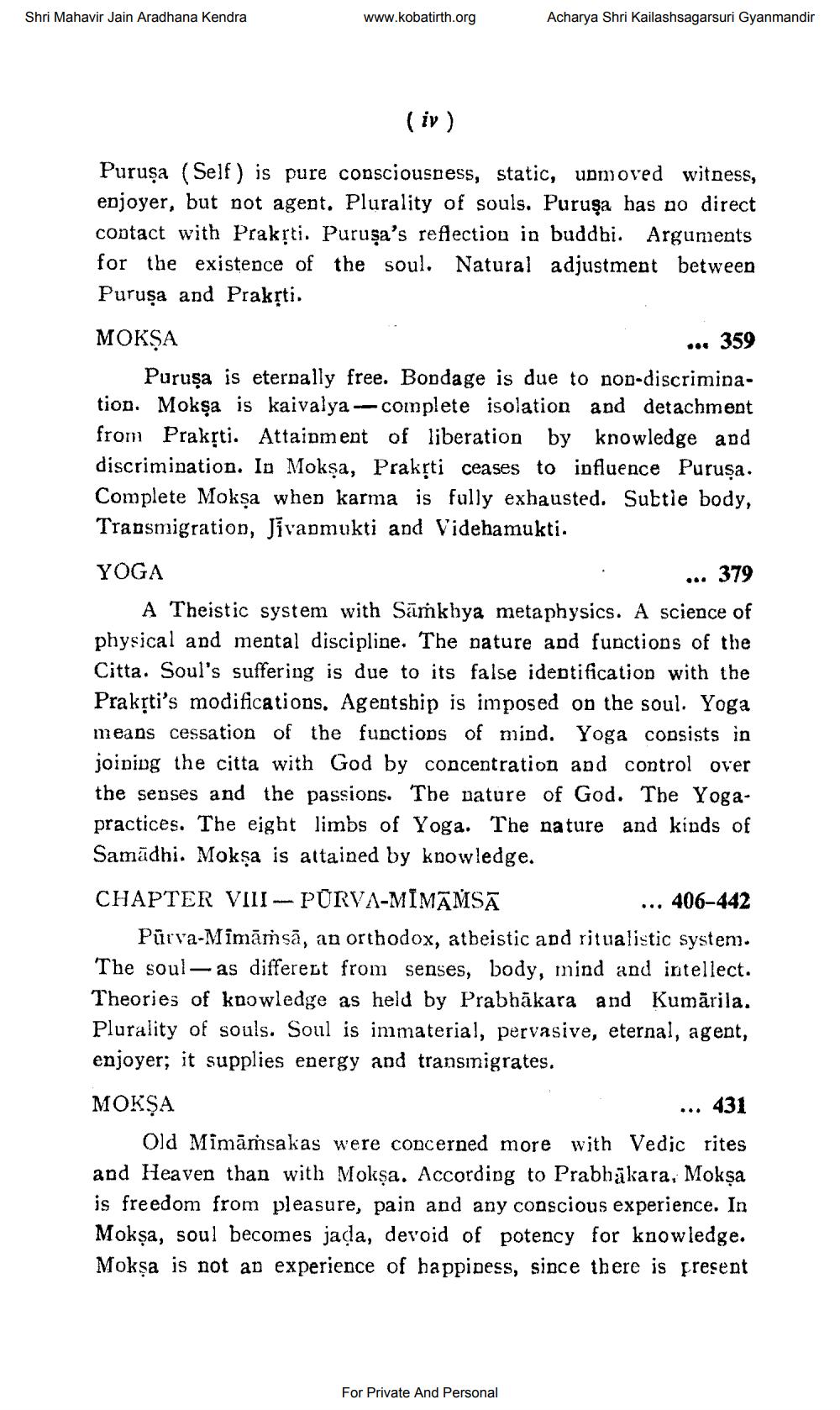________________
Shri Mahavir Jain Aradhana Kendra
www.kobatirth.org
Acharya Shri Kailashsagarsuri Gyanmandir
(iv)
Puruşa (Self) is pure consciousness, static, unmoved witness, enjoyer, but not agent. Plurality of souls. Puruşa has no direct contact with Prakṛti. Purusa's reflection in buddhi. Arguments for the existence of the soul. Natural adjustment between Puruşa and Prakṛti.
MOKŞA
004
Purusa is eternally free. Bondage is due to non-discrimination. Mokṣa is kaivalya-complete isolation and detachment from Prakṛti. Attainment of liberation by knowledge and discrimination. In Mokşa, Prakṛti ceases to influence Purusa. Complete Mokşa when karma is fully exhausted. Subtle body, Transmigration, Jivanmukti and Videhamukti.
For Private And Personal
YOGA
379
A Theistic system with Samkhya metaphysics. A science of physical and mental discipline. The nature and functions of the Citta. Soul's suffering is due to its false identification with the Prakrti's modifications. Agentship is imposed on the soul. Yoga means cessation of the functions of mind. Yoga consists in joining the citta with God by concentration and control over the senses and the passions. The nature of God. The Yogapractices. The eight limbs of Yoga. The nature and kinds of Samadhi. Mokşa is attained by knowledge.
359
630
CHAPTER VIII- - PURVA-MĪMĀMSĀ
406-442
Purva-Mimāmsã, an orthodox, atheistic and ritualistic system. The soul-as different from senses, body, mind and intellect. Theories of knowledge as held by Prabhakara and Kumārila. Plurality of souls. Soul is immaterial, pervasive, eternal, agent, enjoyer; it supplies energy and transmigrates.
MOKŞA
431
Old Mimāmsakas were concerned more with Vedic rites and Heaven than with Mokşa. According to Prabhakara, Mokṣa is freedom from pleasure, pain and any conscious experience. In Mokşa, soul becomes jada, devoid of potency for knowledge. Mokṣa is not an experience of happiness, since there is present
***




